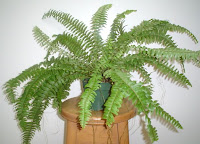It's OK to be negative!
Guests in our office might notice machines with vents at the top sitting inconspicuously by the walls. They are known as ionizers. And they are meant to produce negative ions. If you know anything about the JNP philosophy, you’ve probably already guessed that they are part of our holistic approach to healthcare.
Research shows that people spend approximately 90 percent of their time indoors, and consume 15kg of air a day (compared with about 1kg of food). Thus, the maintenance of indoor air quality is an important step in avoiding the accumulation of toxins in our bodies.)
Ions are integral elements in our air environment. They are essentially molecules that have either gained or lost an electrical charge. They are created in nature as air molecules break apart due to sunlight, radiation, and moving air and water. Between the two, negative ions have been observed to have a significant positive effect on people while positive ions are undesirable to us.
Once they reach our bloodstream, negative ions are believed to produce biochemical reactions that increase levels of the mood chemical serotonin, helping to alleviate depression, relieve stress, and boost our daytime energy. Studies of people with chronic depression show that negative ion generators relieve depression as much as antidepressants.
Positive ions, on the other hand, affect us in the opposite manner. Research has shown that the presence of electrical appliances such as monitors, computers and television sets produce positive ions. Furthermore, air-conditioners remove existing negative ions from the environment. This makes most offices particularly unhealthy places, ion-wise. This contributes the general feeling of lethargy most people feel when they spend a prolonged period of time in their offices. That is why we have installed ionizers and humidifiers in the JNP office - so as to replenish the negative ions in the air.

Most plants are also a good source of negative ions through photosynthesis. In the process they release moisture and absorb carbon dioxide, at the same time negative ions are released. That is why people feel good and fresh around lush foliage. That is why those of us who are qigong practitioners - as most JNP members are - dawn is the best time to be out in the park, absorbing the positive goodness of negative ions. Some plants, such as the Boston fern, chrysanthemum and ivy, produce negative ions more than others, even twice more. These plants do their best work typically before 7am. However, for those of us who lead a hectic weekday lifestyle, a trip to the beach over the weekends may be useful too, as negative ions are also present in significant amounts near bodies of water.
So, while we encourage ourselves to think positive, when it comes to ions, that’s perhaps the only time when being negative is better!




0 comments:
Post a Comment